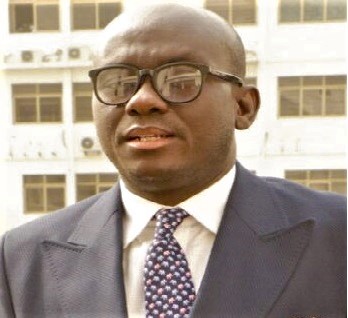
Supreme Court grants A-G time to file response on E-Levy
The Supreme Court has granted the Attorney-General (A-G) more time to file its statement of case against a suit challenging the constitutionality of the passage of the electronic transfer levy (E-levy) by Parliament.
A single justice of the apex court, Justice Clemence Jackson Honyenuga, on May 26, 2022, granted an application for an extension of time moved by Cynthia Quartey, a Principal State Attorney.
Advertisement
Lawyer for the plaintiffs, Godwin Kudzo Tameklo, did not oppose the application for extension of time.
Justice Honyenuga in granting the application, directed the A-G to file the statement of case within 14 days from May 26, 2022.
Suit
The suit was filed by three National Democratic Congress (NDC) Members of Parliament, led by the Minority Leader, Haruna Iddrisu, who are of the view that the passage of the E-Levy was unconstitutional.
The other MPs are Mahama Ayariga, MP for Bawku Central, and Samuel Okudzeto Ablakwa, MP for North Tongu.
It is the contention of the three MPs that Parliament passed the E-Levy with a quorum of 136 MPs instead of the required 138 which would be half of the 275 members as stipulated under Article 104 (1) of the 1992 Constitution.
They are, therefore, seeking a declaration from the apex court that based on Article 104 (1) and the authority of the Supreme Court’s decision in the Justice Abdulai case, dated March 9, the constitutional quorum for decision making is “138 MPs present in the Chamber of Parliament out of the 275 MPs, and not 136 MPs present in the Chamber of Parliament”.
Also, they are seeking a relief that Parliament lacked the required constitutional quorum for decision making when it voted to pass the E-Levy because there were only “136 Members of Parliament present in the Chamber of Parliament”.
They are further seeking a declaration that the purported second and third reading, when the Speaker put the question for the consideration of the E-Levy and the “subsequent passage of the E-Levy is in contravention of Article 104 (1) of the Constitution, and is, therefore, null, void and of no effect”.
Another relief being sought by the plaintiffs is an “order setting aside the purported passage of the Electronic Transfer Levy Bill, 2021, by 136 Members of Parliament of the Majority Caucus present in the chamber of Parliament on March 29, 2022 as being unconstitutional, null and void”.
Injunction
On May 4, 2022, a seven-member panel of the apex court dismissed an interlocutory injunction filed by the three MPs which sought to put the implementation of the E-levy on hold until the final determination of the suit.
According to the court, in the event an injunction was placed on the implementation of the E-Levy and the substantive case failed, the government could not make up for the taxes lost as a result of the injunction.
On the other hand, it was the considered view of the court that the applicants and the public would not suffer any irreparable harm if the injunction application was not granted and the substantive case succeeded.
It held that the court could order the Ghana Revenue Authority (GRA) to refund the E-Levy already collected to the public in the event the substantive case succeeded and the court declared the passage of the E-Levy unconstitutional.
Writer’s email: [email protected]




